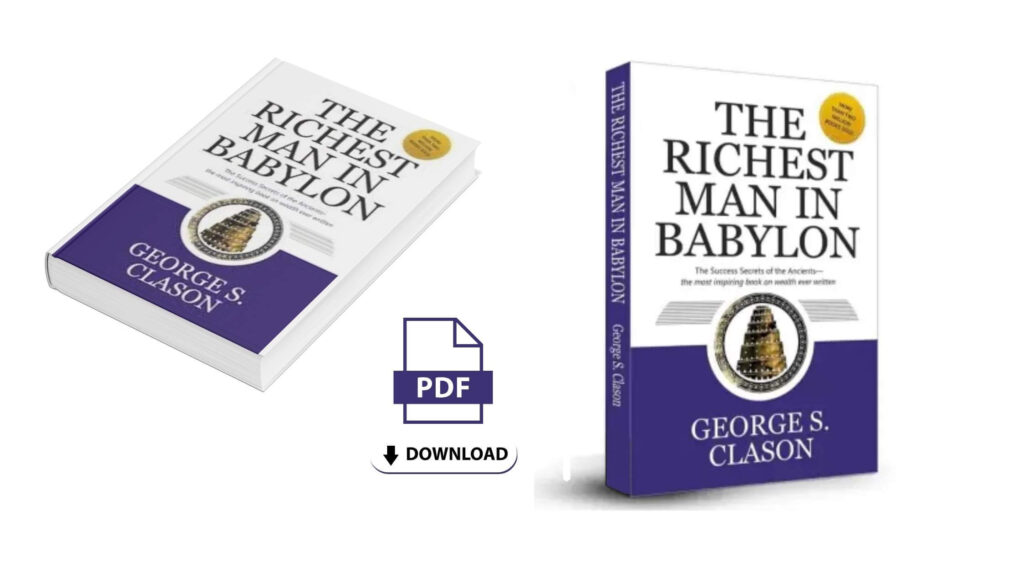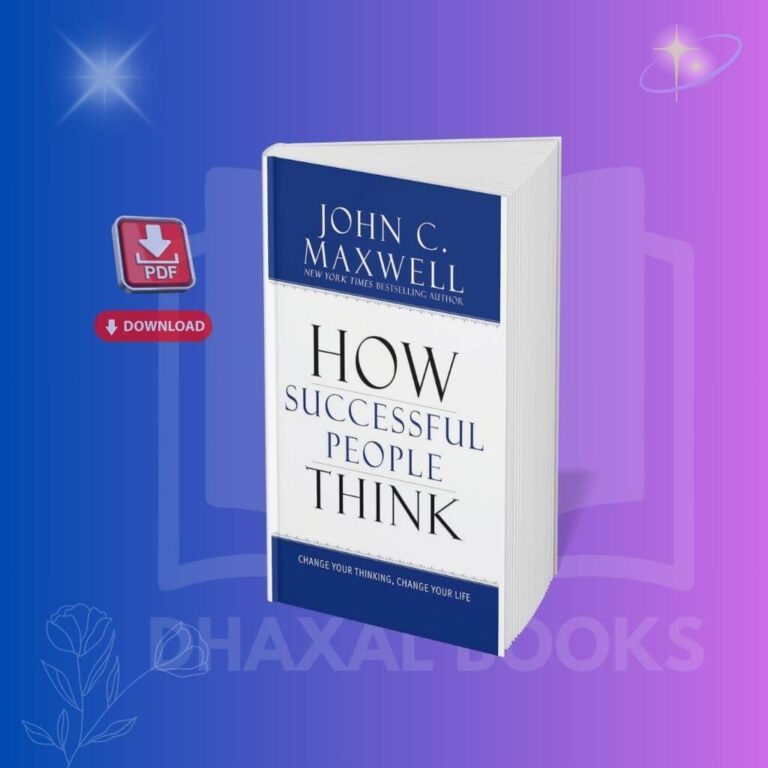
The Richest Man in Babylon (1926) by George S. Clason offers timeless financial advice through parables set in ancient Babylon, 4,097 years before its publication. This enduring classic, still in print nearly a century later, is celebrated as one of the most influential books on personal finance.
Brief summary
The Richest Man in Babylon by George Samuel Clason is a classic personal finance book that teaches valuable lessons in wealth building through simple yet powerful methods. It offers timeless advice on money management and financial success.
The book’s unique structure has inspired countless modern works that expand on its principles.
Structure
The book groups parables into overarching themes, most notably the “Seven Cures for a Lean Purse” and the “Five Laws of Gold,” with some overlapping advice.
Seven Cures for a Lean Purse
- Start Thy Purse to Fattening
Save at least 10% of your income: “For every ten coins thou Places within thy purse take out for use but nine.” - Control Thy Expenditures
Avoid confusing desires with necessities and resist the urge to spend all you earn: “Necessary expenses will always grow to equal our incomes unless we protest to the contrary.” - Make Thy Gold Multiply
Invest your savings to earn returns, allowing your wealth to grow and compound: “Make your treasure work for you. Make its children and its children’s children work for you.” - Guard Thy Treasures from Loss
Be cautious with investments and avoid high-risk, get-rich-quick schemes: “The penalty of risk is probable loss. Study carefully before parting with thy treasure.” - Make of Thy Dwelling a Profitable Investment
Own your home rather than rent and use it to build financial stability: “I recommend that every man own the roof that sheltereth him and his.” - Ensure a Future Income
Plan for retirement and provide for your family’s future: “It behooves a man to make preparations for a suitable income in the days to come.” - Increase Thy Ability to Earn
Invest in self-development to grow your skills and earning potential: “The more wisdom we know, the more we may earn.”
Final Summary
The path to wealth lies in living below your means, saving consistently, and investing wisely. Wealth is built by making your money work for you and by seizing opportunities through hard work and courage.
Actionable Advice:
- Live Below Your Means
Avoid unnecessary debt, especially for luxury items. If you desire something but can’t afford it, focus on saving for it rather than borrowing. Living within your means ensures financial stability and prevents the trap of debt. - Invest Wisely
Save a portion of your earnings and invest it in opportunities that can generate returns, such as stocks or bonds. Let your money work for you by earning interest or generating profits. However, exercise caution—invest only with trusted, experienced individuals or institutions. Avoid high-risk ventures with inexperienced handlers, regardless of how enticing they may seem.
You can find this book in PDF format below.





